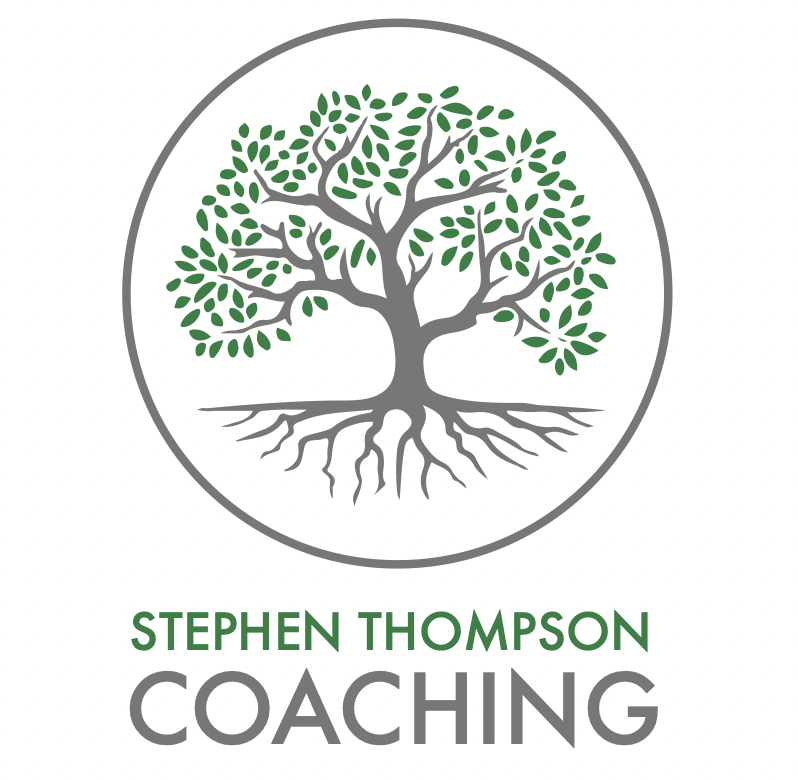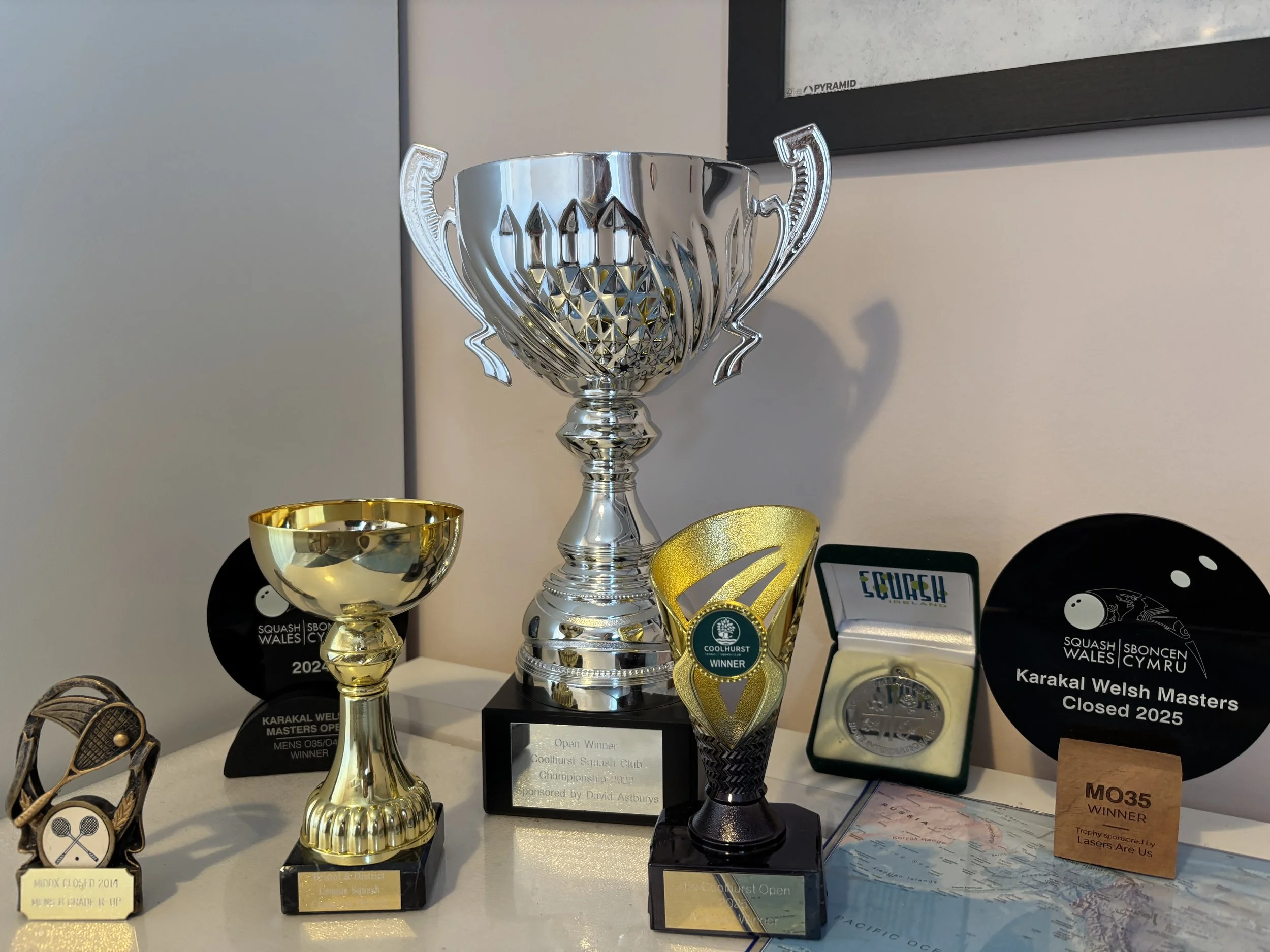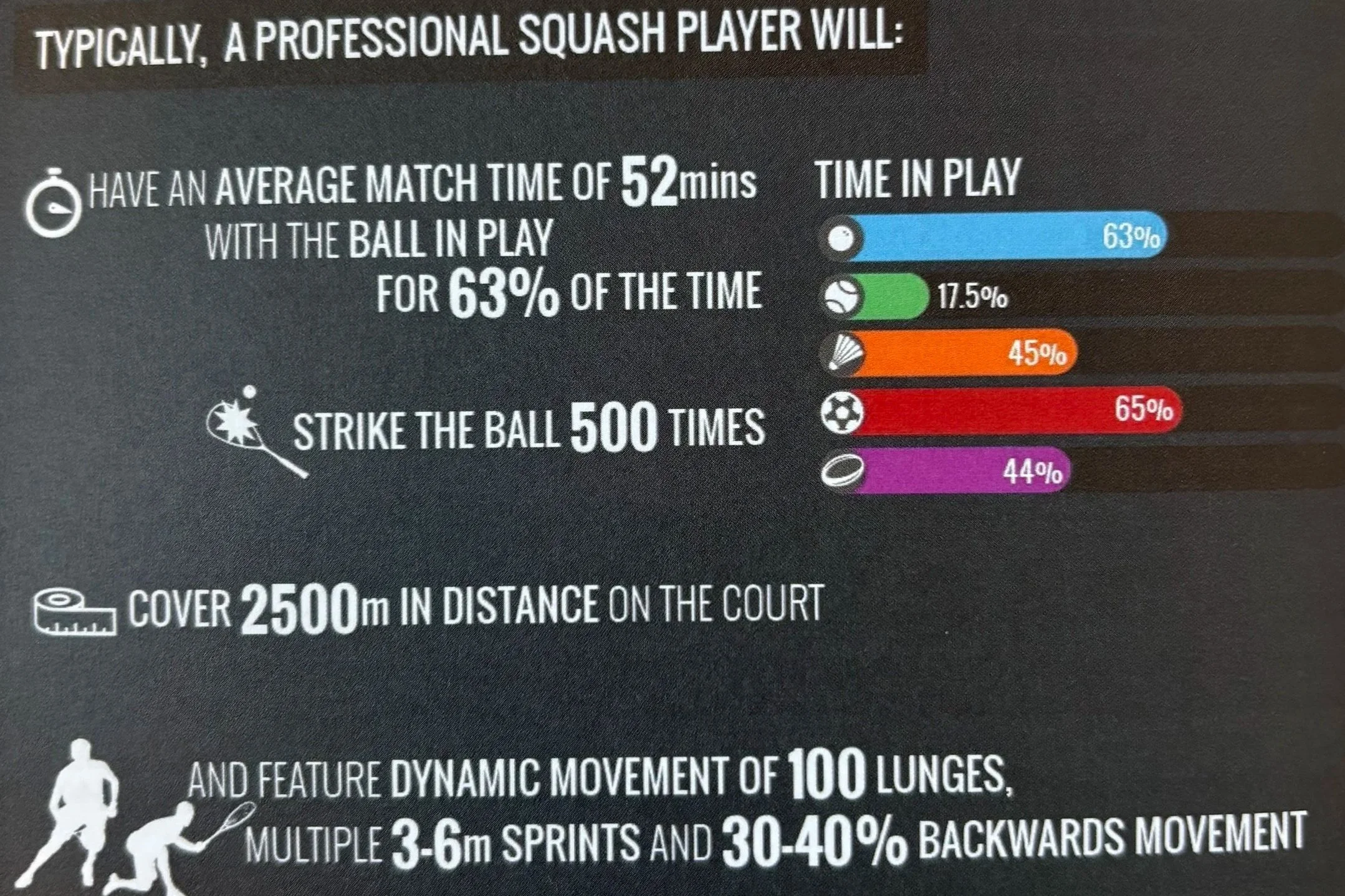3 Tips to Winning More Squash Matches
Tired of losing at squash? Raise your personal standards. A game of squash can require as much as an incredibly intense circuits class…
It’s high intensity, short sharp bursts of movement. Often very explosive, but can also have extended periods of working hard before receiving only a short rest before the next point.
In fact, at the professional level, a squash match on average lasts an average of 52 minutes, the ball will be struck up to 500 times by each player, they will travel 2.5 kilometres (!!) and produce up to 100 lunges. Yep, sounds like a pretty intense circuits class to me.
Of course squash is a whole lot more challenging, because not only do you need to do the physical work, you need to arrive at the ball balanced, stable and ready to play a good quality shot - which you’ve thought about and have the ability to play.
At the very least, if you’re not prepared to complete the equivalent of a 30 minute circuits class in order to win your match, it will probably be your opponent who does the winning.
Ok, this brings us to tip number 1.
Tip 1: Be Physically Prepared
Do you have the cardiovascular fitness to take this match to 5 games and feel ok to play drops and attacking squads in the last game?
Do you have control of your body? Are you able to lunge effectively, in and out, be stable, balanced and move back to the T?
Is there any area of your body that is weak? Squash players need whole body strength, but in particular they need a strong lower body and core.
Image from ‘Strength and conditioning for Squash’ by Chris Gallagher
There’s a good reason I help my Junior players with their physicality through my Physical Conditioning Programme and my Adult players through my Squash Performance Blueprint - being able to get one more ball back than your opponent, often by being fit enough to get there, is worth A TON of points to you in a match.
Too often, I coach players who are stepping onto court unprepared for what’s to come. Unprepared for their particular opponent (having thought about strengths and weaknesses), unprepared with their equipment (not having a water bottle ready or arriving fuelled up) and leaving no time at all to warm up.
This brings us swiftly to tip number 2:
Tip 2: Warm Up the Mind & Body
Prepare your game strategy (mind) & follow an effective physical warm up (body)
I go through a detailed pre and post-match protocol with my players to ensure they are thinking about what they want to achieve in a match, vs a particular opponent, and also post-match we look at reflecting on what went well and what we can take away from that match experience.
A few questions worth asking are:
What is your opponent’s best weapon?
What can I do to enforce my game strategy on my opponent?
What are you trying to achieve today:
Physically ……………………
Mentally ………………………
Tactically ………………………
The Physical Warm Up
A great follow-through video of a full body warm up I have attached below for you to use and adjust that you should find useful:
https://www.youtube.com/watch?v=MQIR_8GVBCk&t=13s
(Yes, this is me)
This will be very familiar to some of you I’m sure, I know I have been guilty of this myself:
You turn up, think you’re ready to get stuck into this important [insert here: league, team, tournament, ‘friendly’ as appropriate] ……… match, and before you know it, you’re a game and a half down, and you’re not really sure how you’re going to get back into this match.
Most likely, you’ve had a bunch of short rallies, haven’t been 100% prepared (physically and mentally) for this opponent, and they have dictated the pace of the game whilst you’ve been using the first game and a half to wake up and actually warm up.
Here comes tip number 3 to the rescue:
Tip 3: Extend the first game to get information about your opponent
Firstly, if you’re physically prepared for a battle (and be under no illusion, squash is a physical battle), have completed an effective warm up and have spent time adjusting your game strategy to your opponent - then you’re ready to take advantage of tip number 3.
Extending the first game, that is to say, not deliberately and unnecessarily trying to cut the rally short, can offer a bunch of information about your opponent. It can show you where they have weak areas, if they are fast or slower moving to the front, if they are confident in the air with volleys, and yes it can also show you a couple of areas that you may want to avoid hitting the ball.
During this time awareness is our greatest friend, and that is the hardest part. It is no small task to be aware of what your opponent is doing on court whilst playing a match. That is why tips number 1 and 2 are so important, because if you haven’t done those two, you’ve got close to zero chance of having the mental capacity and readiness to take in new information thick and fast.
Final Thoughts
Being physically prepared for a tough workout, a physical battle - is more than half the battle!
Warm up the mind & body - if you fail to prepare you’re preparing to fail.
Extend the first game - use awareness of your opponents strengths and weaknesses to inform your game strategy and use it to win.
Want to improve your physicality to win more squash matches?
Adults - Find out about the Squash Performance Blueprint Here
Juniors - Find out about the Physical Conditioning Programme Here
Enter your email below to join our mailing list for more useful content about squash.




